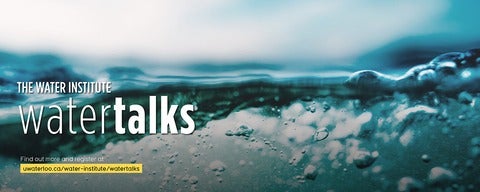The Water Institute and BlackBerry announce partnership

New Innovation Research Challenge Seeks Proposals for Novel Applications of BlackBerry Technologies to Advance Progress Against UN Sustainable Development Goals
WATERLOO, ONTARIO – January 6, 2022 – Building on a partnership spanning over three decades, BlackBerry Limited (NYSE: BB; TSX: BB) and the University of Waterloo’s Water Institute, one of the world’s top water research institutes, today launched a first-of-its-kind innovation research challenge for professors and students.
The Water Innovation Challenge invites new applications of BlackBerry technologies to address water-related challenges, including the cybersecurity of water systems, water emergencies, and Internet of Things (IoT) water management solutions.









